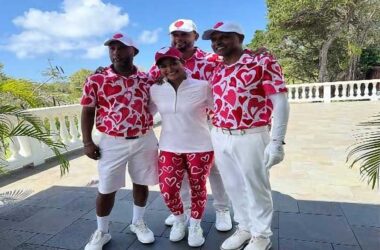The 2020 Summer Olympics Games in Tokyo, Japan holds the usual pomp and circumstances as all Olympic Games do. However, this time around it has hovering over it the COVID-19 pandemic. It is hoped that the old story of athletes testing positive for banned substances will not surface.
Recently this reporter caught up with a man of many talents, Dr. Kenneth Louisy, a former president of the Saint Lucia Boxing Association; Saint Lucia Basketball Federation and Vice President of the Saint Lucia Amateur Swimming Association (SLASA).
A General Practitioner by profession Dr. Louisy has served as Saint Lucia’s representative on the Regional Anti-Doping Organization (RADO) before stepping down after many years of service.
In an effort to educate our readers and Saint Lucians at large on the use of banned substances commonly called, Performance – Enhancing Drugs or PEDs, this reporter posed some questions pertaining to RADO to Dr. Louisy.
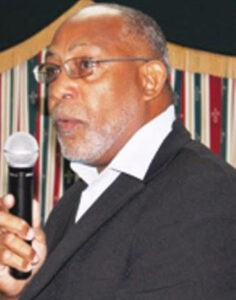
How long has the Caribbean Regional Anti- Doping Organization been in operation, its roles and functions?
“It’s close to 15 years and it was first started in Jamaica; which is no longer part of it. It then developed into a robust organization over the years spanning from the Bahamas to Suriname”.
Who is Saint Lucia’s current representative on RADO and how does one get elected?
“Saint Lucia’s representative is George Charlemagne and it’s the responsibility of the Saint Lucia Olympic Committee (SLOC) Inc because we don’t have a free standing National Anti-Doping Organization (NADO). As an independent entity what happens is for countries like Saint Lucia which do not have a NADO, the Olympic committee stands in, they are in effect the anti doping authority in Saint Lucia”.
During your tenure as Saint Lucia’s representative, how often were meetings held by RADO?
“There is a meeting once a year, and what we did was to rotate the countries depending whether a country wanted to accept responsibility of hosting. Saint Lucia hosted on one occasion, but you have countries which may have hosted more than once”.
Following those meetings was information filtered to the various national sports federations in Saint Lucia as to the way forward?
“Yes and No. Yes, bulletins were put out; invitations were sent to national sports federations to attend informative sessions, not all of them usually turn up, unfortunately. At the same time, the people who form the nucleus of the anti doping group over the years have been invited to give talks/ seminars/ workshops to associations and clubs, which we have never refused”.
Would you define the responsibilities of a Board Member?
“The board member coordinates anti doping activities in country. When I was the board member for Saint Lucia, I was in charge of coordinating anti doping activities such as testing, educational activities, projects, and also liaising with the RADO office which is presently in Barbados”.
World Anti Doping Agency (WADA) has allocated significant funds to RADO over the years, are these funds still available to member states and has Saint Lucia benefited from such funds?
“Yes. The funds are not going directly to Saint Lucia, but to NADO, almost every year there will be a seminar/ workshop associated with the annual meeting. They have also helped in allocating a Testing grant to the various member countries through DORADO for testing. We do not pay for testing under that grant. The grant was created because our resources were very limited and it was very important for us to do Testing, be code compliant. If we were not doing Testing, we would not be code compliant. You have to do a certain number of Tests every year to become code compliant”.
In terms of Anti Doping Officers how many do we have on island and do they all belong to one national sports federation?
“Presently we have six active Doping Control Officers. No, some don’t belong to any national federation. For example, we have one person who is not in a federation; he is in a club, three other physicians including myself. We also have two anti doping officers who are also blood doping officers”.
“In other words they are qualified to do urine as well as drawing blood to do blood doping to find out whether any body is doing drugs that you cannot find in their urine, we have not had the opportunity to use it because of the logistics, getting the samples out to the United Kingdom or to Montreal, Canada in a timely fashion. With the blood doping you have limited window in which to send the samples up to the lab. With the urine the window is a little wider”.
How can one become a Doping Control Officer?
“You have to do training and you have to be certified. The first certification was done by the Canadian Centre For Ethic In Sports (CCFEIS), they are the doping control authority in Canada, since then it has been done by the United States Anti Doping Agency (USADA) volunteering their time and resources to train. There is an online examination that one can take after you become a Certified Doping Control Officer (CDCO) to get re access and then to be registered”.
Do you believe enough information is poured out to the public so they are aware of Anti Doping?
“This is a funny question to answer, I will tell you why. We have had three projects; the first one was part of a Regional / UNESCO project because they provide funding for education in anti doping as part of their responsibility. That was held for physical education teachers and coaches and took place at the Daren Sammy Cricket Ground. The SLOC with the help of the Doping Control Officers fraternity had also done two projects, one was targeting athletes in schools and the other targeted the entourage/ personnel (physiotherapist, doctors pharmacists, managers) any person that would be a support for an athlete, ironically the biggest turn out was the doctors through the Medical and Dental Association, we did not have a very good turn out from coaches, athletes and managers. They were invited”.
“The question is, whether or not they see the importance of anti doping education as far as trying to prevent their athlete from being involved in activities which will be to their detriment from a health point of view and from a career point of view, because there are sanctions that will come if you are found with a prohibited substance in your system or to be practicing prohibited methods and in trying to create a level playing field which is an on going struggle, its not easy”.
“In Saint Lucia we do not have a high incident of athletes taking performance enhancing drugs, but in other countries it’s a struggle, they always seem to be one step ahead notwithstanding all the development that take place with technology”.
“It’s up to the athletes, coaches and their entourage to understand that we have to educate our athlete because most of them go overseas where they may be exposed and you cannot let them go out ignorant or else they will find themselves in a situation where they are taking a substance and they don’t know what it is they are taking and in the long term they are caught”.
“The thrust for educating athletes in the area of anti doping is one that really and truly ought to be ongoing and the people involved in the development of athletes ought to be involved and encourage the athletes to participate in”.
Part 2 of Dr. Kenneth Louisy interview will continue in the March 24th 2021 edition of the VOICE Newspaper.


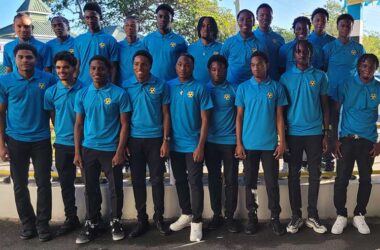
![MSS takes on VPSS in an action thriller [Photo credit: MYDS]](https://thevoiceslu.com/wp-content/uploads/2026/02/MSS-takes-on-VPSS-in-an-action-thriller-feat-380x250.jpg)
![Tapon House recorded its fourth consecutive title victory [Photo credit: MYDS]](https://thevoiceslu.com/wp-content/uploads/2026/02/Tapon-House-recorded-its-fourth-consecutive-title-victory-380x250.jpg)

![Julien Alfred, left, edges Jacious Spears to win the women’s 60 metres at the Tyson Invitational in Arkansas, USA on Friday [Photo credit: CMC]](https://thevoiceslu.com/wp-content/uploads/2026/02/Julien-alfred-1-380x250.jpg)
![Denver Alphonse Jr. [Photo Credit: ASC KCS]](https://thevoiceslu.com/wp-content/uploads/2026/02/Denver-Alphonse-Jr-feat-380x250.jpg)
![On field action in the Bay Bay Cup [Photo credit : MYDS]](https://thevoiceslu.com/wp-content/uploads/2026/02/On-field-action-in-the-Bay-Bay-Cup-feat-380x250.jpg)
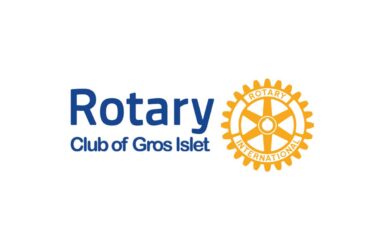
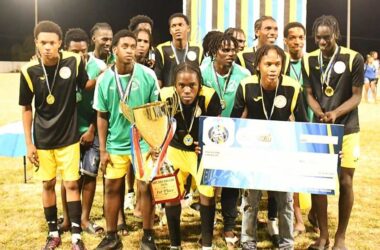
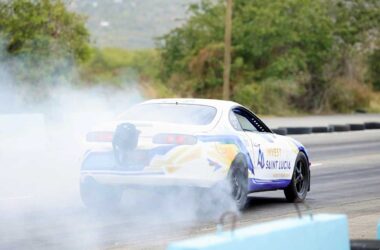
![VFCSS takes on BCSS in on court action at the BIF [Photo credit : MYDS]](https://thevoiceslu.com/wp-content/uploads/2026/02/VFCSS-takes-on-BCSS-380x250.jpg)
